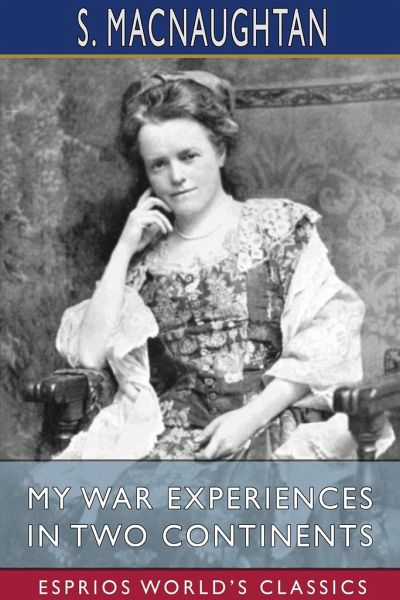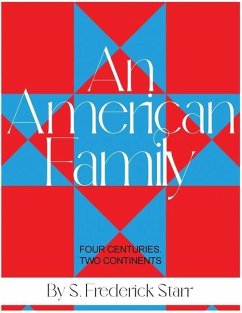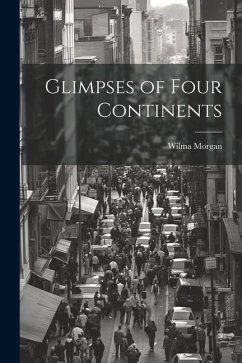Nicht lieferbar

My War Experiences in Two Continents (Esprios Classics)
Edited by Mrs. Lionel Salmon
Versandkostenfrei!
Nicht lieferbar
Weitere Ausgaben:
Sarah Broom Macnaughtan (26 October 1864 - 24 July 1916) was a Scottish novelist. With the outbreak of the First World War, she volunteered with the Red Cross Society and was sent to Russia and eventually Armenia. She wrote extensively about the plight of the Armenian refugees of the Armenian Genocide. She died due to an illness she contracted while abroad. London. There she would embark on a career as a writer, with her first novel, Selah Harrison, published in 1898. The best known of her works were The Fortune of Christina M'Nab (1901), A Lame Dog's Diary (1905), and The Expensive Miss Du Ca...
Sarah Broom Macnaughtan (26 October 1864 - 24 July 1916) was a Scottish novelist. With the outbreak of the First World War, she volunteered with the Red Cross Society and was sent to Russia and eventually Armenia. She wrote extensively about the plight of the Armenian refugees of the Armenian Genocide. She died due to an illness she contracted while abroad. London. There she would embark on a career as a writer, with her first novel, Selah Harrison, published in 1898. The best known of her works were The Fortune of Christina M'Nab (1901), A Lame Dog's Diary (1905), and The Expensive Miss Du Cane (1900).














